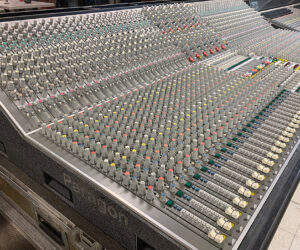What crazy times! When the COVID-19 pandemic struck, the world shut down. To address the problem, governments everywhere unchained their coffers by delivering checks to individuals, launching infrastructure programs and subsidizing businesses.
The intent was clear: by taking on debt, governments would avoid another 1930s-style Great Depression. Although these funds provided many with the household basics until their jobs came back, there were many unanticipated ripples – the domino effect.
With restaurants, bars, concerts and travel suddenly closed, folks that were lucky enough to be able to work from home and continue to enjoy a regular salary, now had extra cash in hand. So, what did they do? They bought up bicycles, stereo systems, keyboards and guitars. With two extra hours a day saved from commuting, they justified their expenses as finally having the time to learn to play guitar or piano.
The overall result was an explosion in demand for “things” that could be enjoyed at home. With online video tutorials, anyone could now learn to play in no time! Guitar and home keyboard suppliers (a.k.a., retailers, distributors, manufacturers) experienced banner sales and struggled to keep up with demand.
Slippery Slopes
However, just as demand rose, factories were shuttered, and supply chains broke down as parts and labor became scarce. You couldn’t buy a new bicycle for your kid and the cost of used bikes soared. New cars? Forget about it. Sales adverts changed from “come buy it” to “come order it.” The outcome: used car prices soared, at times to almost absurd levels!
To address the shortage problem, suppliers scheduled orders to fill the needs with the assumption that deliveries would begin again and things would soon come back to normal. They did not. It took a lot more time than anticipated for manufacturers to ramp-up production and when they finally did, they flooded the market with goods, choking the retail channels.
As folks went back to work, the dream of learning to play guitar was abruptly (and literally) shelved. Demand plummeted. Retailers revolted. Just this month, Music Trades published a report on musical instrument imports announcing demand collapsed, registering historic lows going back two decades. Acoustic guitar imports dropped by a whopping 64 percent!
With demand for goods down, what do you do when a major microphone manufacturer fills your back-orders and abruptly sends six months worth of inventory? You can return it only to risk losing the franchise or you can at the very least request extended terms to give you some extra time to move products through the system.
With demand curtailed, money becomes tight. Manufacturers and distributors are now being extra prudent and holding back on placing any new orders until their inventories are reduced and cash comes in the door. Hot items sell out, and a new shortage is created. In short: the domino effect.
Shifting Paradigms
Still today, supply chain problems persist. Although things have improved, problems continue to hamper business. In some cases, orders placed now are being scheduled for delivery in six months or more. Oddly enough, it’s no longer about getting the best price; it’s now all about delivery. If you have it, you get the sale. There is no loyalty when it comes to feeding the hungry…
As we’ve become accustomed to buying online, traveling to the local music store to pick up a pack of strings and a tuner has become more work than necessary. With online shopping, you can bundle your music equipment wants/needs with dog food, groceries and a nail clipper to meet the free-freight policy, and have it all delivered the next day.
Not sure what to buy? It used to be that we would go to the local store and ask for advice. Back in the 1970s when I worked in retail, I spent days and nights reading every owner’s manual so that I could provide clients with informed solutions. (My bathroom turned into a library!)
In the 80s, we would stage in-house clinics to educate the market. Not anymore. Want to know how to adjust the neck on your Strat or repair the sink in your kitchen, go online and find a tutorial. Want to learn how to play guitar? Download a video with step-by-step instructions – instant gratification! I still have nightmares when I think back to picking up and dropping down the needle on my record player as I tried to learn the latest Eric Clapton lick.
The younger generation, in particular, has become accustomed to learning as-needed. Few are prepared to invest. Further, unless they’re truly passionate, most music store employees are simply there to put in time and in return for a meager paycheck. They’re living for today with the reality that they may never be able to afford to buy a house.
If these employees can’t provide informed answers to your clients, what value does your shop bring? You have to find a way to earn customer loyalty. Sweetwater, for example, figured this out years ago and continues to invest huge amounts educating their salespeople so that they’re able to deliver value. Educating front-line staff so that they can provide helpful advice goes a long way towards customer retention.
Strategies To Pursue
Let’s face it, there’s no way to compete directly with the “big boys.” As a reseller, you can’t carry everything. I believe that it’s better to have a focus so to maximize your sales potential in a particular niche. The 80-20 percent rule has shifted to 90-10 percent. If an entity can specialize and offer value that others can’t, it can develop the most elusive prize of all: customer loyalty!
Ask yourself: what is my market advantage? What value can I bring to my customers? For instance, because you are local, you can actually go out and visit your customers! How about offering a free PA system tune-up to the local club, high school or house of worship? How about including a free guitar string height and neck adjustment once a year with their purchase?
The online giants largely can’t offer this level of service – you can. And when it comes to providing customer service, don’t just order products in the hopes they are delivered – invest the time to contact suppliers and find out if they have it in stock. If they don’t, see if you can find an alternative so that you can deliver quickly and keep that customer happy.
Let’s go one step further and call it VIP service. Rock stars do it all the time by offering special seats, T-shirts and meet and greets. Fans pay big bucks for these extras! In other words, it’s not just about the lowest price. Keep your customer happy and you will may well gain their loyalty!















